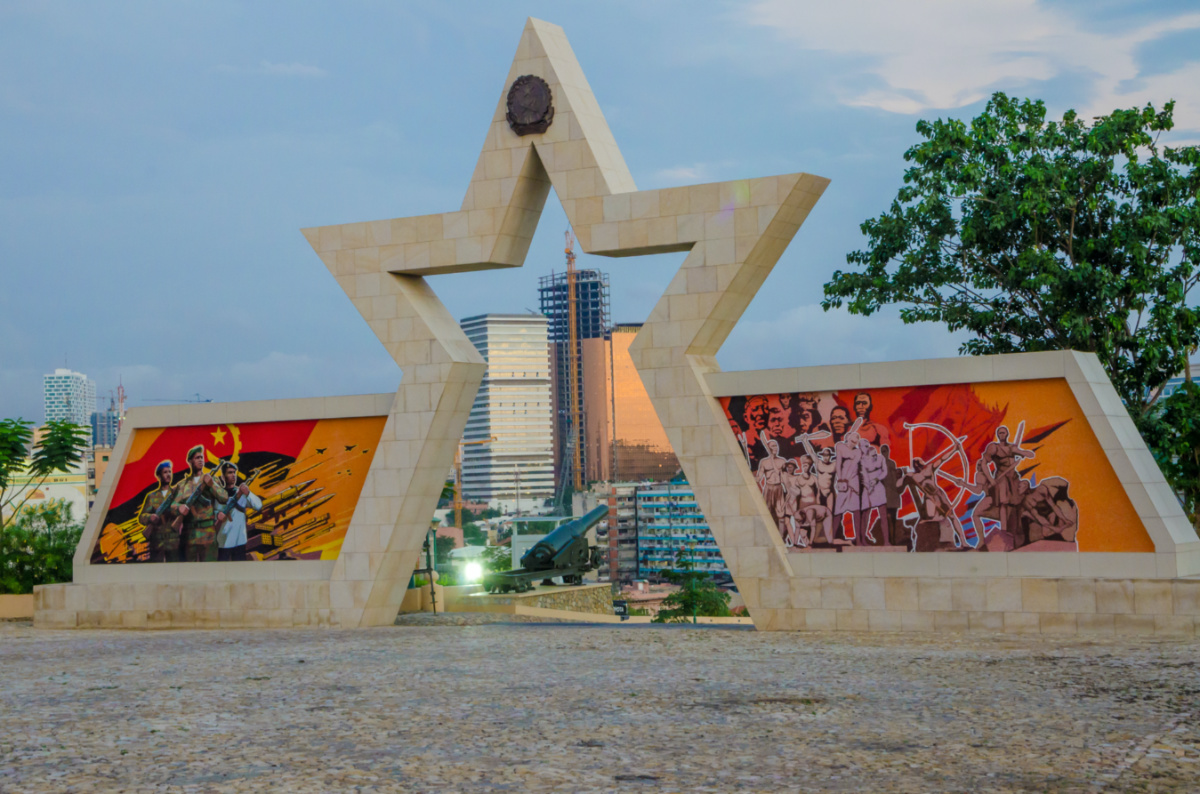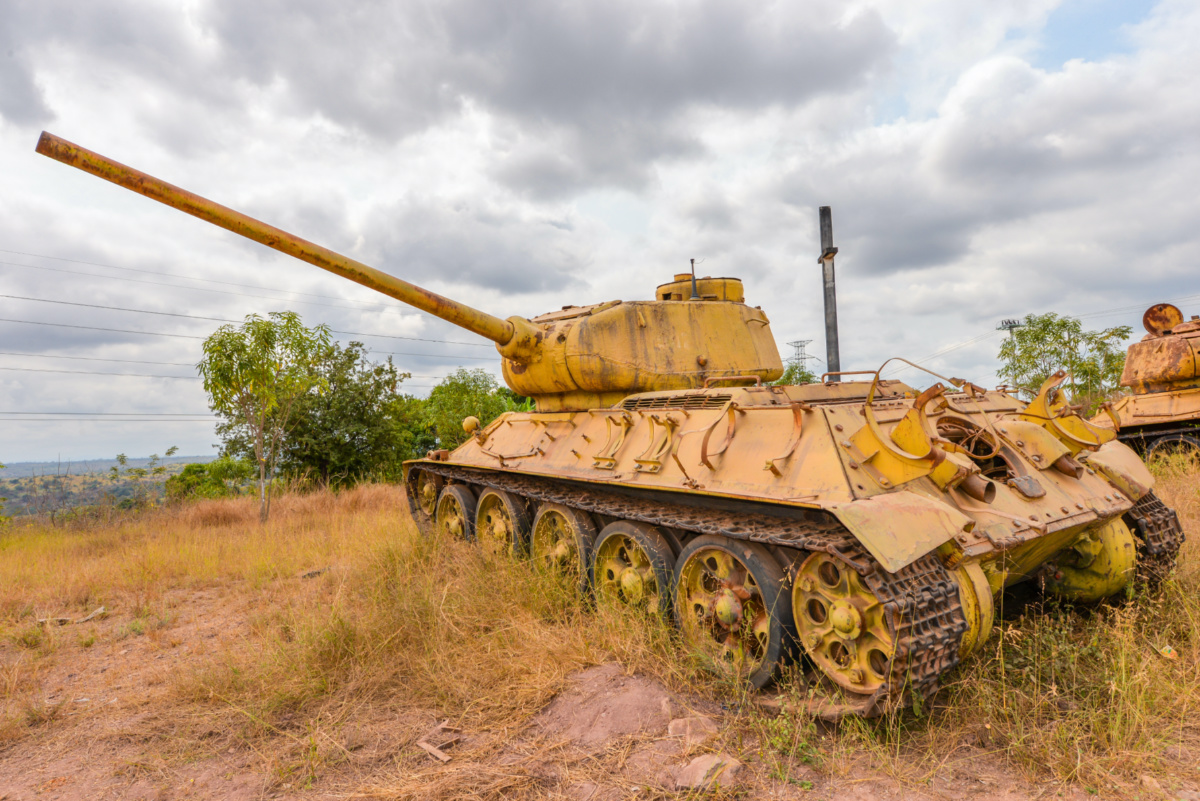Nairobi, Kenya
Christian leaders in Angola have launched reconciliation programs aimed at healing the wounds of the civil war that ended over two decades ago, leaving nearly one million people dead and displacing four million.
Between 1975 and 2002, the Southern African nation of now more than 35 million people was embroiled in one of the bloodiest civil wars, pitting the Popular Movement for the Liberation of Angola (MPLA), led by José Eduardo dos Santos, and the National Union for the Total Independence of Angola (UNITA), led by Jonas Savimbi.

A civil war memorial depicting The Angolan flag and soldiers at Fortaleza de Sao Miguel in Luanda, Angola, on 28th April, 2014. PICTURE: Fabian Plock/Shutterstock
The civil war, which saw two former liberation movements face off against each other with Cold War superpower backing, resulted in deaths, displacements, sexual slavery, rape, summary executions, looting, and starvation.
The church leaders said the civil war impacted heavily on the remaining population since most of the people, especially children, were directly affected through either displacement or the loss of their loved ones. The leaders said most of the survivors were victims of the violence, others were perpetrators, many witnessed people and their loved ones being tortured and killed, and many others served as soldiers during the civil war.
“When you look at most youths today, they have not healed from the war. Their hearts are still bleeding because of the brutal things they witnessed, and they still display symptoms of post-traumatic stress disorder,” said Pastor Gilberto Joao of the Pentecostal Hope Church in Luanda, the country’s capital.
“Something needs to be done to avert the situation,” he advised. “Most people in this country pretend to be peaceful, but they continue to suffer trauma more than two decades after the civil war. They need to be counseled and treated to accept whatever happened and forgive each other. Otherwise, we might one day experience the same civil war that devastated our nation.”
Archbishop José Manuel Imbamba, of the Catholic Archdiocese of Saurimo in Angola, lamented that there was still a lot of work to be done for the country to achieve true reconciliation, including “a need to address the politicisation of peace itself, of reconciliation itself and of the whole process of reuniting the Angolan family, the politicians are monopolising the whole process.”
“The gangrene of violence that has been sown in our hearts and consciences for years is still shedding blood,” the Archbishop recently told the country during one of his shows at Radio Ecclesia in Saurimo. “The situation we are in requires urgency, shock measures, and strong medicine to overcome this negative phase that has marked our subconscious and, from time to time, still seems to command our senses.”
“We still haven’t reunited as a country after the civil war, and we still don’t understand each other,” he added. “We still don’t have the same language as a country, we still don’t have the same language as a nation, and we still don’t have the same language as citizens.”
We rely on our readers to fund Sight's work - become a financial supporter today!
For more information, head to our Subscriber's page.
The religious leaders said it was time for the church and other stakeholders to come together and begin a process to heal the wounds of the civil war that gripped the country for 27 years. The leaders said they needed to initiate programs to heal the psychological wounds of affected families and bring about lasting peace that has been admired since the end of the war.
“We have started talking to families, youth groups, and elders about what caused the civil war and the impact of the war, and what they need to do to avoid another war,” said Pastor Joao. “We try to counsel people to accept what happened then, forgive each other, and move on with their lives.”

Tanks, relics of Angola’s civil war. PICTURE: Antonio Rodrigues Peyneau/Shutterstock.
The Archbishop said he was concentrating on bringing people together and urging leaders to focus more on finding a true reconciliation that will help the country heal and move forward.
“I am rallying people to come together and speak about what ails them so that we can forgive and embrace each other,” he said. “It’s important that we all focus on bringing a lasting peace to the country and urge the politicians and other leaders to shift their focus on the reconciliation process.”
However, Pastor Joao said the process hasn’t been easy as it requires a lot of resources to organise meetings and support from other stakeholders like government and non-government organisations and experts such as counsellors.
“The process has been slow because of lack of money and goodwill from other stakeholders,” he said. “But I want to urge everyone to be involved in the counseling process to save this generation and our country.”






